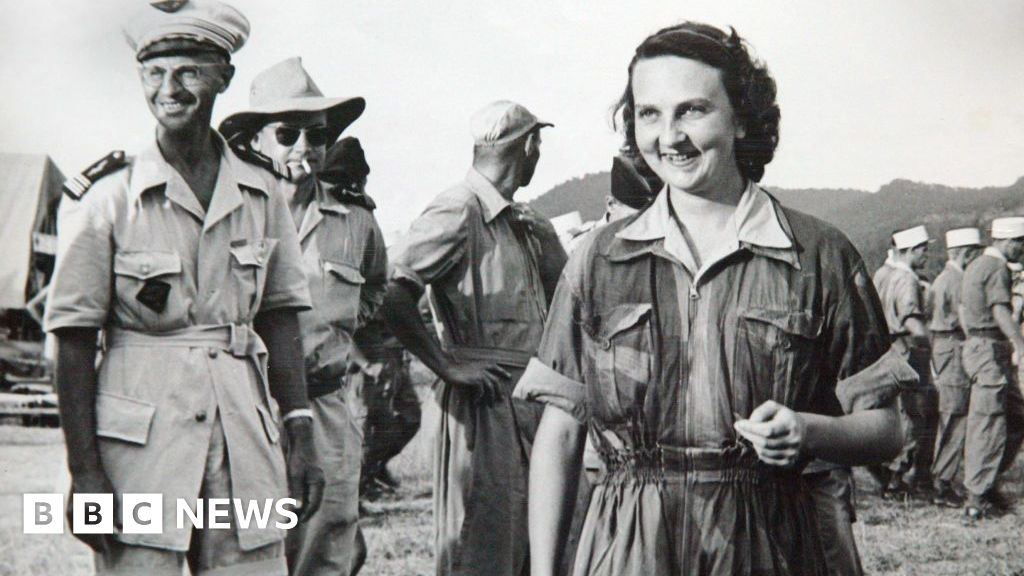A French nurse dubbed the “angel of Dien Bien Phu” for her care of wounded and dying soldiers during the Indochina war in the 1950s has died at the age of 99.
Geneviève de Galard became a celebrated figure exactly 70 years ago when she was the only woman nurse tending French casualties inside the doomed redoubt of Dien Bien Phu in northern Vietnam.
She won the adoration of French soldiers for her unflinching dedication during more than a month of bloody fighting before the stronghold fell on 7 May.
Captured, then released, by the Communist Viet Minh, she featured on the front page of Paris-Match magazine. Later she was given a ticker-tape parade in New York and was decorated by US President Eisenhower.
In a message on X, formerly Twitter, French President Emmanuel Macron said that “in the worst moments of the Indochina war, Geneviève de Galard showed an exemplary courage and devotion amid the suffering of 15,000 French soldiers”.
Born in 1925 into an aristocratic family in Paris and raised as an observant Catholic, de Galard trained as a nurse after World War Two and joined the army medical service as a flight-nurse.
After several trips evacuating wounded men from Dien Bien Phu, she was marooned there at the end of March 1954 when her plane sprung an oil leak. In the following days, Viet Minh bombardments put the airstrip out of action.
In the last phase of France’s eight-year war in its then colony of Indochina, the French army was ordered to hold on to Dien Bien Phu at all costs, even though as a remote rural settlement its military significance was limited.
But after dragging artillery through mountainous jungle terrain, the Viet Minh under Gen Vo Nguyen Giap surrounded the encampment and in 50 days of shelling and infantry charges forced the French into submission.
In stifling heat and with rudimentary sanitation, de Galard helped the army surgeons carry out scores of amputations and emergency operations. She comforted the dying and promised to deliver last messages to loved ones.
Little did she realise that amid the gloom of the unfolding disaster, the world’s press was writing up the one positive news story about the “angel of Dien Bien Phu” administering selflessly to the wounded.
A Time magazine profile was typical: “In Dien Bien Phu’s underground hospital, amid the stench of death, antiseptics and rotting wounds, Nurse de Galard lost 18 pounds in work and worry.
“She cut her hair very short; she switched at last to green fatigues, changing sometimes to a paratrooper’s trousers and shirt. She had her own dugout with silk sheets, made from parachutes… but more often she would sleep on a cot beside the wounded.
“I am glad I am trapped,” she once told GHQ. “I am proud to be here.”
Before the fall of Dien Bien Phu, de Galard was decorated with the Military Cross and the Legion of Honour, and she was made an honorary member of the Foreign Legion.
In her memoirs she said: “In Dien Bien Phu I was a little bit the mother, a little bit the sister, a little bit the friend. Simply my being there, because I was a woman, seemed to make the hell a little less inhuman.”
After the war, de Galard married a soldier and eventually returned to live in Paris. She always said she was astounded by the fuss made about her, because she had merely done her duty.

